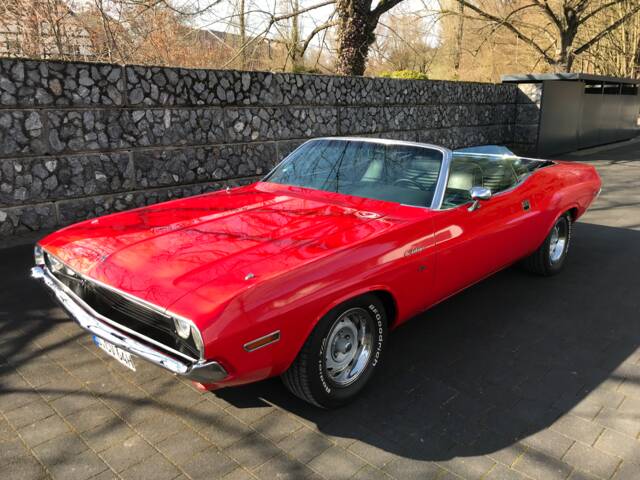- Automobile
- Dodge
- Dodge Challenger (8 offerte)
Dodge Challenger Classic Cars for Sale
The Dodge Challenger stands as an unmistakable representative of American muscle, combining striking design, powerful engines, and an unmistakable road presence. Across its three generations, it has continually evolved while retaining its distinct attitude and unmistakable sound. Discover a diverse range of engine options, special editions, and unique features that define the Challenger experience.
Risultati della ricerca
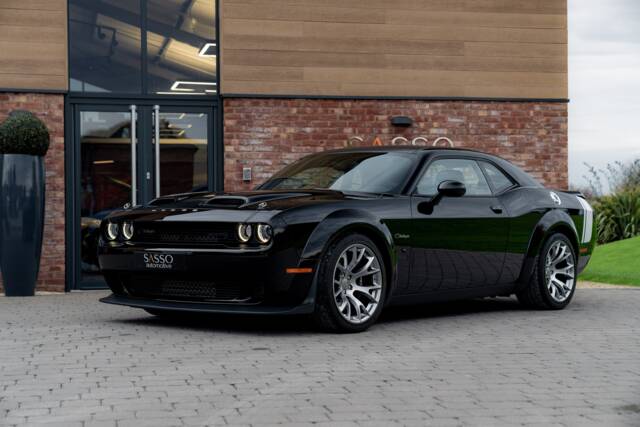
2023 | Dodge Challenger SRT "Black Ghost"
"Last Call" Edition, 1 of 300 Worldwide
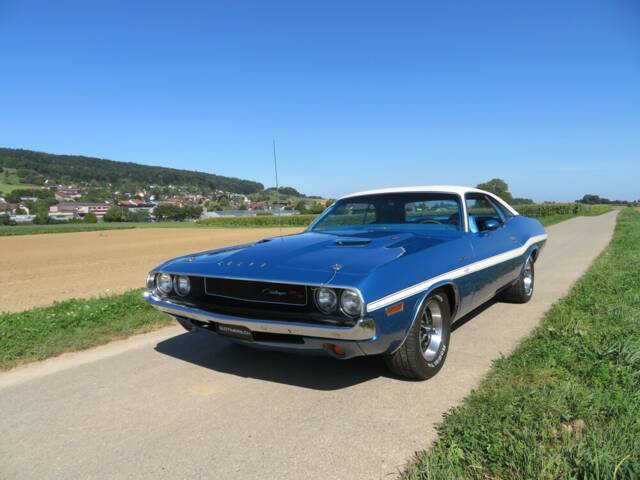
1970 | Dodge Challenger R/T 440 Six-Pack
Originaler 440 Magnum - MFK 07.2025 Veteran!

2018 | Dodge Challenger SRT Demon
SRT Hellcat Demon
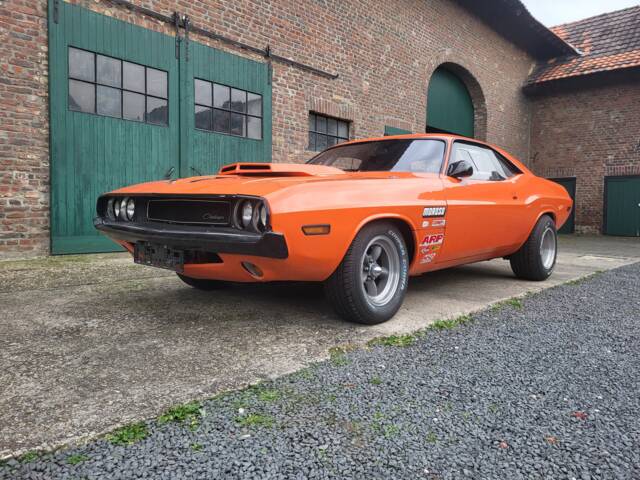
1970 | Dodge Challenger R/T 440 Six-Pack
Dodge Challenger 440 Muscle Car Competition
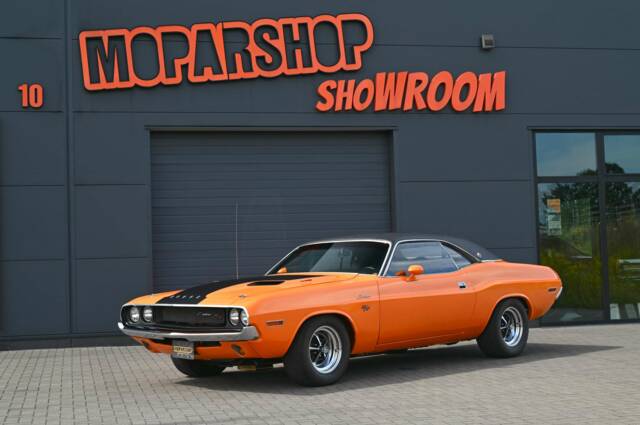
1970 | Dodge Challenger R/T
original special edition & restored, 660 PS HEMI power, many technical improvements
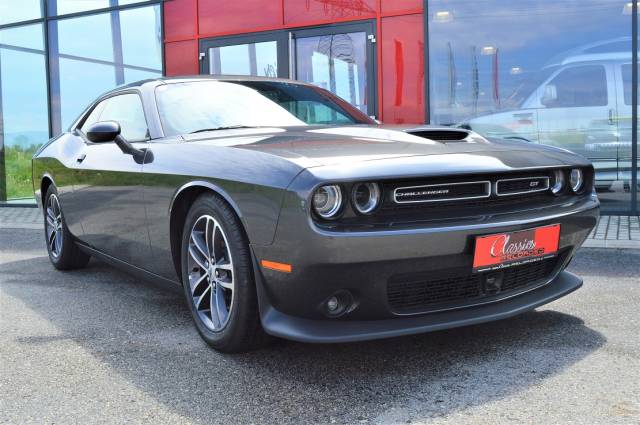
2019 | Dodge Challenger SXT
Europa Modell mit deutsch-sprachigem Navi, Bordcomputer und metrischen Einheit
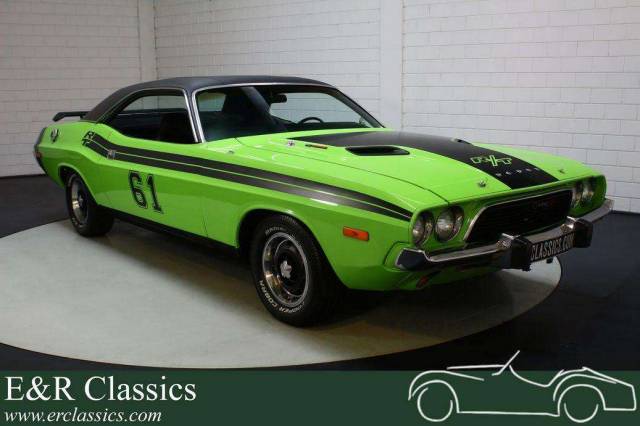
1973 | Dodge Challenger 340
Dodge Challenger RT | Gerestaureerd | V8 | Automaat | 1973
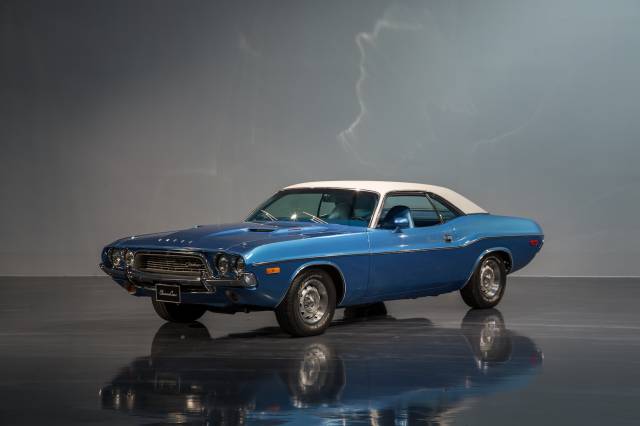
1972 | Dodge Challenger 318
Wie damals bestellt
Dodge Challenger listing references from Classic Trader
Below you will find listings related to your search that are no longer available on Classic Trader. Use this information to gain insight into availability, value trends, and current pricing for a "Dodge Challenger" to make a more informed purchasing decision.
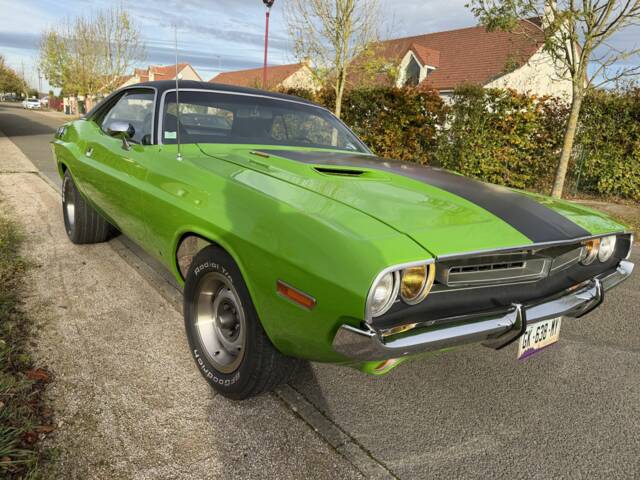
1971 | Dodge Challenger 340
Dodge Challenger | 1971 | Route 66 Auctions - For sale by auction. Estimate 35500 EUR
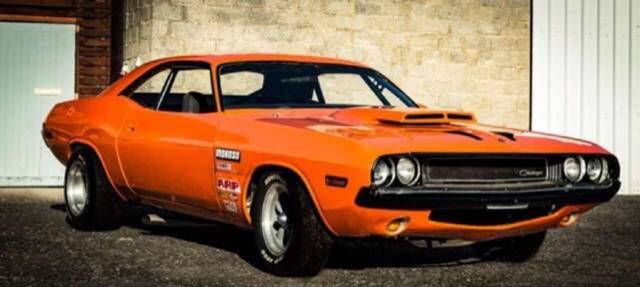
1970 | Dodge Challenger 340
1970 Dodge Challenger
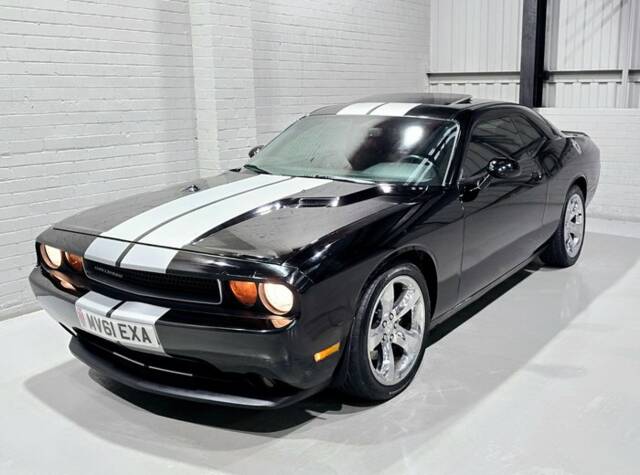
2012 | Dodge Challenger SXT
Dodge - 2012 Dodge Challenger SXT Plus - 2012
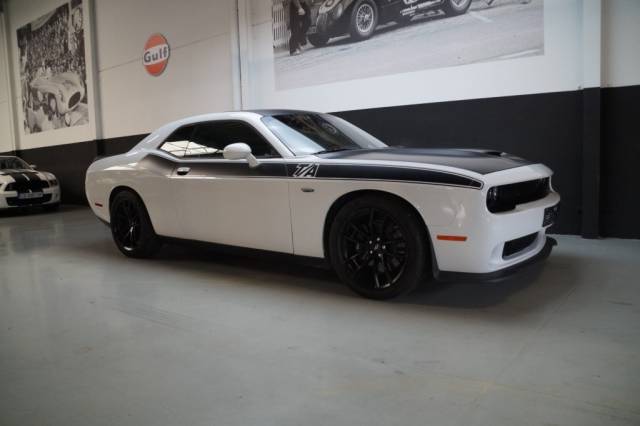
2020 | Dodge Challenger R/T Scat Pack
Just over 5,200 kilometers
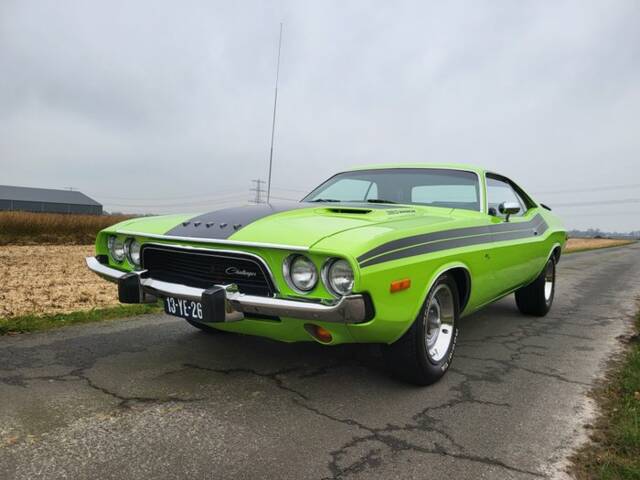
1974 | Dodge Challenger R/T
Dodge - Challenger RT - 1974
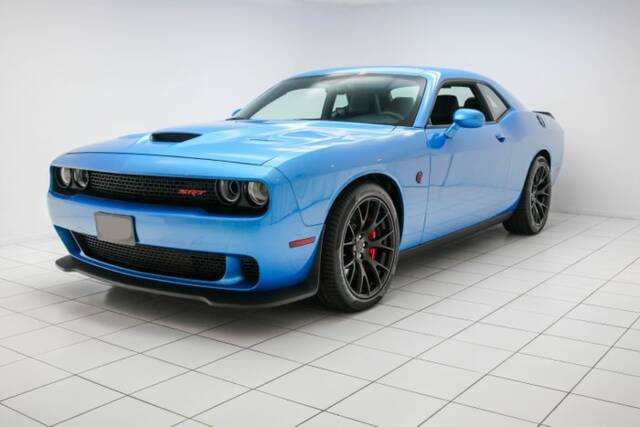
2015 | Dodge Challenger SRT Hellcat
Dodge - Challenger SRT Hellcat - 2015
Dodge Challenger Classic Cars: Prices & Market Values
The market value of Dodge Challenger classic cars is primarily determined by the specific manufacturer code and variant, as well as technical condition, originality and mileage. Additional factors include rarity, history and documentation. A well-maintained, largely original vehicle with low, verifiable mileage and complete history including appraisals and documentation typically achieves significantly higher prices than a comparable vehicle with deferred maintenance, many modifications or unclear provenance.
Dodge Challenger: Market Prices & Value Trends
Based on Classic Trader marketplace sales data from January 2021 to January 2026, Dodge Challenger prices show a broadly stable-to-firm trend, with the biggest movements driven by model rarity rather than a uniform market lift. In Europe, most 1970–1974 “classic” Challengers (318/340/383 and R/T variants) typically cluster around £40,000–£70,000, with well-specified R/T and big-block cars sometimes pushing into the £80,000–£120,000 bracket. Modern muscle models are more split: mainstream 2008–2016 R/T and SRT8 examples often sit around £14,000–£30,000 depending on mileage and import status, while high-output SRT Hellcat/Redeye cars commonly trade in the £45,000–£95,000 range. Limited-run halo models (such as Demon) can appear far higher, but these are outliers and shouldn’t be taken as the “normal” market. Overall, today’s Challenger market rewards provenance, factory specification and condition, with continued interest in both early 1970s icons and late-era supercharged V8 specials.
History and Background of the Dodge Challenger
The Dodge Challenger name first appeared in 1959, originally marking a special trim level of the Coronet. However, it was in autumn 1969 that Challenger established itself as a serious contender in the muscle car segment, designed to compete directly with the Ford Mustang and Chevrolet Camaro. As one of two Chrysler E-Body models, along with the Plymouth Barracuda, the Challenger distinguished itself with a longer body and a more luxurious interior. Renowned for its wide choice of engines—all sourced from the Chrysler range—buyers could choose everything from a straight-six to high-performance V8 powerplants. The front end, designed by Carl Cameron, gave it a bold identity, and the Challenger soon featured in American pop culture and films.
Model Range and Evolution
The Challenger's first generation, produced from 1970 to 1974, was defined by its 110-inch (2,794 mm) wheelbase—two inches longer than the Barracuda—and a clear focus on customisability. With hardtop and convertible body styles available, owners could further personalise their Challenger with myriad luxury and performance packages, interior trims, and exterior features such as vinyl roofs and special wheels. Engine choices spanned everything from the 145hp inline-six up to the notorious 426 HEMI V8. By 1974, declining demand ended production temporarily after approximately 165,437 cars had left the factory. A second generation appeared from 1978–1983, in cooperation with Mitsubishi, and reimagined the Challenger as a cost-effective sports coupé. After another hiatus, the retro-styled third generation launched in 2008, echoing the original's look with modern technology, powerful HEMI engines, and advanced comfort and safety features.
Unique Features and Model Highlights
The Challenger’s breadth of editions is striking—ranging from standard models, Special Editions (SE), Rallye packages, and, notably, the high-performance R/T and SRT variants. Period-specific options included luxury interiors in leather with wood-effect dashboards, vinyl roofs, and the distinctive 'Shaker Hood'. Advanced for their time, models could be specified with quad headlights, Rallye instrumentation, and optional air conditioning. Distinctively bold colour options became a hallmark: Hemi Orange, Tor Red, and Mango Tango among them. Modern versions offer Harman Kardon sound systems, Uconnect infotainment, advanced safety and driving aids, and aggressive Brembo brakes. Factory-fitted ambient lighting, sports suspensions, and advanced limited-slip differentials feature on higher-performance variants.
Technical Specifications
Special Editions and Rare Variants
Among the most sought-after editions: the 1970 R/T SE, limited to less than 4,000 units, featuring a 375hp V8, vinyl roof, unique interior trim, and advanced warning indicators—quite progressive for the early 1970s. Later, the SRT Hellcat became instantly recognisable thanks to its supercharged 6.2L HEMI, wide wheels, revised suspension, and aggressive design cues. Various MOPAR editions, Shaker hoods, and Performance Plus or Technology Packages further mark out rare, collectable configurations.
Engines, Gearboxes and Driving Behaviour
Original Challengers are defined by powerful, torque-heavy V8s and rear-drive dynamics. The early ‘70s cars deliver 0–100 km/h times around 6 seconds and a top speed exceeding 200 km/h—impressive for the era. The third generation sees advanced HEMI engines putting out 5.7L, 6.4L, and the 6.2L supercharged options, all paired with either 6-speed manual or advanced automatic transmissions. Handling is direct and engaging; more recent iterations benefit from traction control, sports-tuned Bilstein suspensions, and four-piston Brembo brakes. Owners can expect characteristic exhaust tones and robust cornering performance. - 1970 Challenger R/T: 7.0L V8, up to 425hp, four-speed manual, limited-slip differential.
- 2015+ Challenger SRT Hellcat: Supercharged 6.2L V8, over 700hp, modern traction and stability systems, six-speed manual or 8-speed automatic, Brembo brakes.
- Challenger T/A, Shaker, SE: Distinctive visuals, unique interiors, rare option packages.
Interior, Equipment and Styling
The Challenger’s identity owes much to its bold, squared-off muscle profile and Carl Cameron-designed front. Classic models feature vinyl roofs, concealed wipers, and the instantly recognisable split grille. Interiors offered rich personalisation even in the 1970s—leather, luxury panels, overhead consoles, wood-effect or carbon inlays, and Rallye clusters. Modern versions incorporate ambient lighting, heated and ventilated sports seats, navigation, and advanced infotainment from the likes of Harman Kardon. Special exterior features include twin racing stripes, hood pins, bold spoilers, and US-market-only colours such as Hemi Orange or Plum Crazy Purple.
Other Distinct Features
The Challenger maintains a strong presence in American and global car culture, with appearances in films like 'Vanishing Point' and TV classics like 'Dukes of Hazzard'. Several restored or unrestored 'survivor' vehicles circulate as original specimens—a point of interest for purists seeking authenticity. Model lineups often feature driver-assistance technologies like adaptive cruise, lane-keeping, fatigue warning, and advanced sensors in newer releases.
Summary
The Dodge Challenger provides enthusiasts with a broad spectrum of options—from the raw V8 flair of the 1970 R/T to technologically advanced modern interpretations like the SRT Hellcat. With strong supply and proven demand, its continuing success as both a collector and enthusiast vehicle is backed by a highly customisable range, timeless styling, and recognisable presence on both road and screen.








